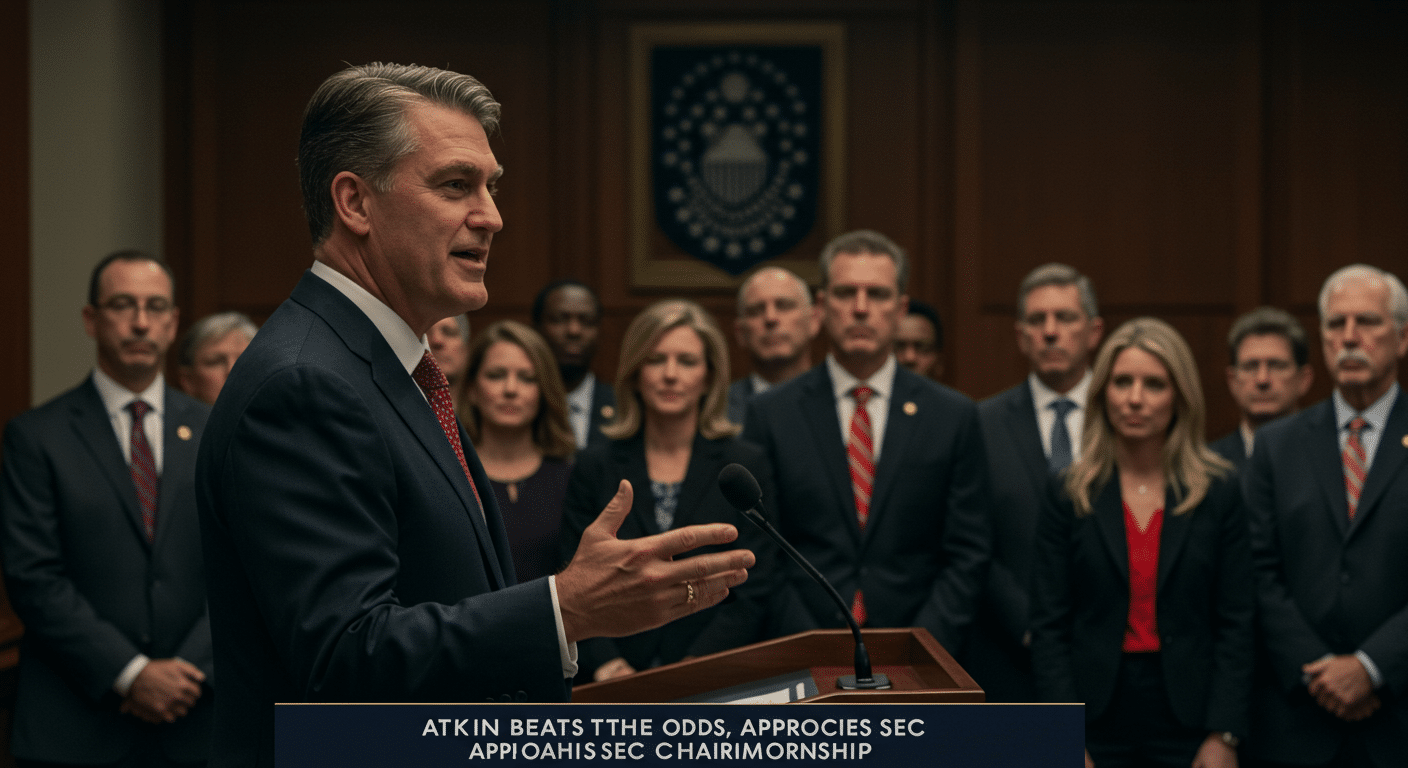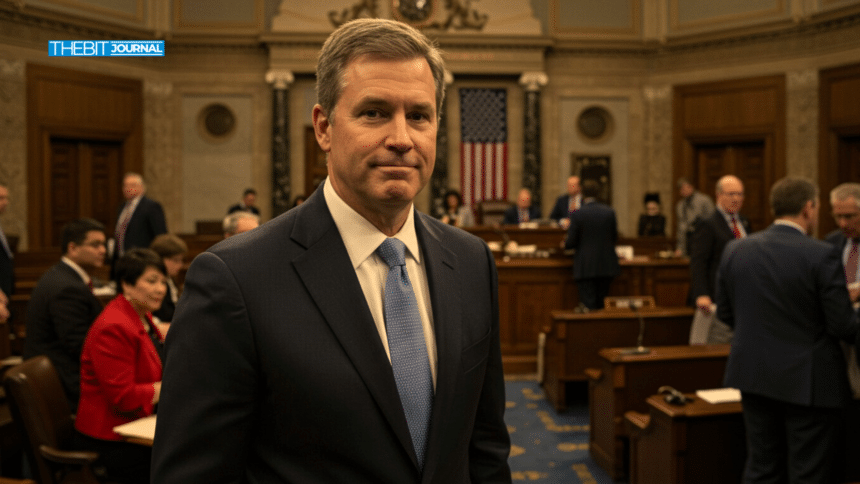The Senate Banking Committee approved Paul Atkins as the new Securities and Exchange Commission (SEC) Chair. The committee members voted 13-11, with Democrats voting against him and Republicans voting in favor. All Senate members will vote to finalize his appointment.
Paul Atkins overcame opposition from Democratic lawmakers, although he maintained his known stance in favor of regulatory ease and digital transformation.
A group of Republican members continued to support his nomination as they passed his candidacy through the Thursday hearing. The committee’s approval confirms Trump’s plan to direct the SEC’s focus toward market development and crypto-related clarity.
The committee’s support puts Atkins in a position to take over as SEC head because this indicates probable changes in the regulatory approach. The recent market changes caused by this move have specifically affected cryptocurrency markets.
The political dispute regarding digital asset regulation within United States society manifests through his advancement process.
Paul Atkins Beats the Odds, Approaches SEC Chairmanship
The Senate Banking Committee, which included officials from the SEC and Treasury Department, conducted its session on Thursday to choose financial lead positions.
Atkins secured a slim victory when he managed to win support from a majority of voters during the voting session. Extensive partisan divides became evident as all Republican members voted for the candidates while opposing Democrats maintained a single bloc.

The SEC saw Atkins work from 2002 to 2008, which made him known to many congressional representatives. His past experience at the SEC failed to attract Democratic backing since that political party gave no support whatsoever. The continuous opposition came from both strategy reasons and disagreements about his measures for regulation.
As the top Democrat on the committee, Elizabeth Warren exercised her right to oppose the nomination while conducting proxy voting for absent members. Warren has faced strong opposition from the crypto industry since she took her firm position against it years ago. Warren joined forces with other Democrats to enact measures blocking digital asset growth.
Democratic Pushback Possibly Due to Atkins’s Free-Market Regulatory Philosophy
Political pundits were surprised that Democratic lawmakers united against Donald M. Atkins because of his past SEC experience and history of bipartisan dealings during previous roles.
He advocated Free-market principles, which became why lawmakers criticized him. According to his views, the streamlining of regulations created doubts about inadequate oversight procedures.
The SEC’s possible pivot in strategic directions becomes evident through the present nomination of Atkins, who focuses on digital finance and emerging technologies.
Republican lawmakers praised Atkins’ dedication to removing obstacles to capital flows and decreasing regulatory barriers. According to Democrats, changes in this direction might jeopardize safeguarding investors’ rights.
During the session, the board voted on various key financial positions and produced results that matched the differences in regulatory viewpoints. A 13-12 vote favored James Gould to lead the Office of the Comptroller of the Currency as the same tension ran through the chamber. Luke Pettit obtained both Democratic support and opposition for his appointment to Treasury head.
Currency Status to Digital Assets Like Bitcoin
The cryptocurrency market showed positive developments because of Atkins’s move, which strengthened investors’ faith in policies that support digital assets.
Bitcoin reached more than $100,000 after the official announcement of Atkins as the new SEC chairman in December 2020. Investors viewed this positively as an indicator of regulatory changes. His successful confirmation could have additional influence on market direction.

The financial markets deserve continuous innovation from Atkins, which focuses on blockchain and tokenized assets. Professional observers predict that his appointment will result in improved clarity regarding the SEC’s regulation of digital assets. The financial industry predicts organizations will move away from strict enforcement methods toward active regulatory interactions.
The Senate has displayed division about digital currency’s treatment under present securities regulations. Republicans stand behind innovation, yet Democrats show cautiousness toward its different forms. The two parties’ different outlooks will make the pending Senate vote a matter of nationwide interest.
FAQs
Who is Paul Atkins?
Paul Atkins is a former SEC Commissioner and a Trump-nominated candidate for SEC Chair known for supporting market-friendly regulation.
What was the result of the committee vote?
The Senate Banking Committee approved Atkins’ nomination by a narrow 13-11 margin, with all Republicans voting in favor.
Why did Democrats oppose the nomination?
Democrats opposed Atkins mainly due to his deregulatory approach and support for digital assets, which they view as risky.
How has crypto reacted to his nomination?
Following his nomination, Bitcoin’s value surged past $100,000, signaling market optimism about potential regulatory changes.
What’s next for Atkins?
Atkins’ nomination now heads to the full Senate, where a final confirmation vote will determine if he becomes SEC Chair.
Glossary
SEC (Securities and Exchange Commission): The U.S. agency regulates securities markets and protects investors.
Digital Assets: Cryptographic tokens such as Bitcoin or Ethereum that operate on decentralized blockchain networks.
Free-Market Regulation: A policy approach limiting government intervention and encouraging market competition and market innovation.
Proxy Vote: A vote cast on behalf of another lawmaker, often used when members are absent.
Capital Formation: The process of building up a nation’s capital stock through investments in productive enterprises.




























